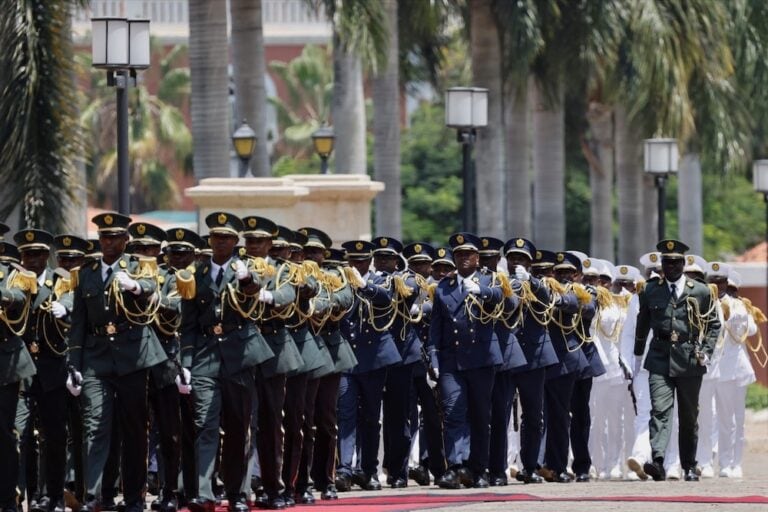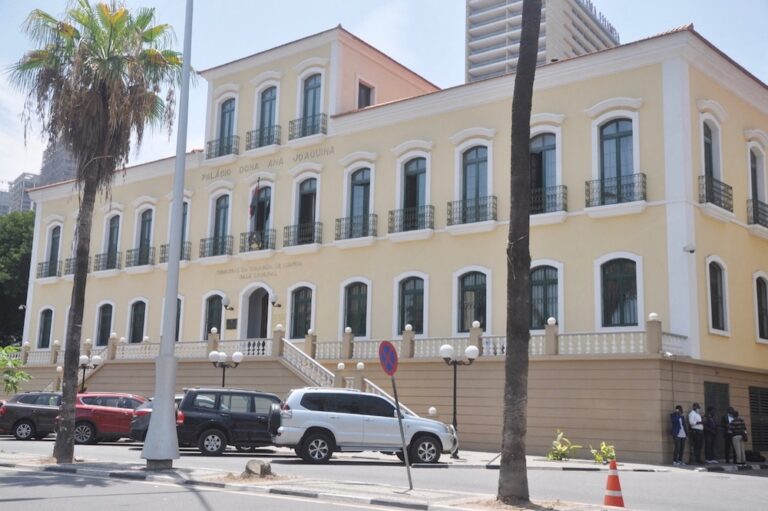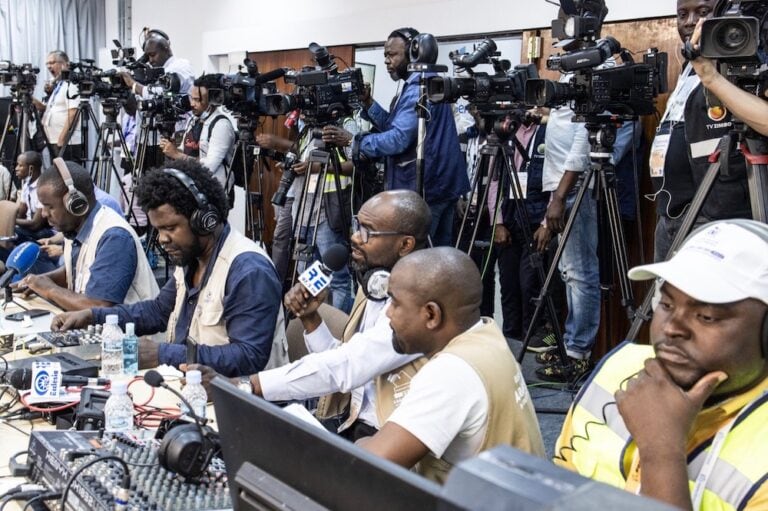Three human rights defenders were arrested, apparently on political grounds, following an 8 January 2010 attack on Togolese footballers in Cabinda.
(Human Rights Watch/IFEX) – New York, February 23, 2010 – The Angolan government should promptly release three human rights defenders who were arrested on apparently political grounds following the January 8, 2010 attack on Togolese footballers in Cabinda, Human Rights Watch said today. Human Rights Watch also expressed concern about the continued detention without charge of five other people.
Togo’s national football team was attacked in Angola’s oil-rich enclave of Cabinda. Two people were killed and at least nine others wounded as the team traveled by bus from the Republic of the Congo to Cabinda to compete in the 2010 Africa Cup of Nations. Separatist rebels from a faction of the Front for the Liberation of the Enclave of Cabinda (FLEC), which has been fighting for Cabinda’s independence since 1975, claimed responsibility for the attack.
“The Angolan government has an obligation to investigate and prosecute those who attacked the Togolese team,” said Georgette Gagnon, Africa director at Human Rights Watch. “But arresting outspoken human rights defenders in Cabinda suggests the government is using the attack to target its peaceful critics.”
The Angolan authorities have arrested at least eight men since the attack on suspicion of “state security crimes.” According to credible sources interviewed by Human Rights Watch, police arrested the first one at 5:30 a.m. on January 8, before the Togolese footballers were attacked at 3 p.m. local time. Three of those arrested, Belchior Lanso Tati, Francisco Luemba, and Raul Tati, are all prominent Cabindan intellectuals and human rights defenders who are outspoken critics of the government. Since the attack, the authorities have also harassed and intimidated others critical of the government.
The Angolan government announced after the rebels’ claim of responsibility that it would prosecute the attack’s “material and moral authors,” and the police have routinely called the detainees “terrorists.” There is no evidence that the police have conducted a forensic criminal investigation into the attack.
Angolan law provides for a maximum initial detention period of 45 days for security crimes before charges must be brought against any suspects. The attorney general must justify an extension of the time limit. The 45 days expired on February 22 for arrests on January 8. To date, no charges have been brought against any of the eight.
The Angolan authorities have claimed that only two of the eight suspects – João António Puati and Daniel Simba – were directly involved in the attack. They are residents of a village close to where the attack occurred, near the border with the Republic of the Congo. Human Rights Watch has received credible reports that the military have mistreated Puati and Simba to force them to confess to the crime. Abuse against detainees by the military is common in Cabinda, particularly in rural areas, as Human Rights Watch previously documented.
The six other detainees were arrested by the police in the city of Cabinda under suspicion of having committed “crimes against the security of the state.” They are:
– Andre Zeferino Puati, member of a Catholic Church group, arrested on the morning of January 8;
– Pedro Benjamim Fuca, an oil worker, arrested on January 13;
– Belchior Lanso Tati, an economist and university professor, arrested on January 14;
– Raul Tati, a Catholic priest and university professor, arrested on January 16;
– Francisco Luemba, a lawyer and writer, arrested on January 17;
– Barnabé Paca Peso, engineer and former human rights activist, arrested on February 14.
Belchior Lanso Tati, Francisco Luemba, and Raul Tati, the three most prominent detainees, were held largely incommunicado for 10 days before the authorities lifted these restrictions. Lawyers had only restricted access, and family members had no access to them.
The three had been prominent members of Cabinda’s civic association Mpalabanda. Before the Angolan government banned Mpalabanda in 2006, claiming that it was inciting violence, the organization had issued several human rights reports on Cabinda and facilitated peace negotiations between the separatist FLEC guerrillas and the government. Together with others, these three men continued preparing peace talks until 2009 between the Angolan government and the guerrilla factions that had not laid down their arms. The peace initiative had been encouraged by senior government officials. An impartial facilitator to these meetings, Rev. Ntoni Nzinga – a senior Angolan peace activist – told Human Rights Watch those meetings aimed at finding a solution to the Cabinda conflict and establishing lasting peace.
Angolan law on “crimes against the security of the state” dates from 1978, when Angola was under one party rule and in the midst of a nationwide civil war, and defines security crimes very broadly. It includes not only those participating in violent acts that undermine the territorial integrity and sovereignty of Angola, but also in “collective action aimed at instigating public opinion . . . , that is in accordance with foreign pretensions” (article 1). Human Rights Watch believes that basing detentions on such a broad definition of security crimes undermines fundamental rights of freedom of expression, association, and peaceful assembly, as guaranteed in Angola’s new constitution.
“The Angolan government should initiate without delay an impartial and transparent investigation into the January 8 attack and its circumstances,” Gagnon said. “Using broad-brush state security crime laws is likely to result in abuse instead of credible criminal charges against the ones who are responsible.”
Following the January 8 attack, members of civil society in Cabinda have told Human Rights Watch about increasing government intimidation and harassment. A journalist told Human Rights Watch that on January 20, Angolan security officials had warned him his life was at risk because the authorities considered him to be a “dangerous person” who has “damaged Angola’s image” by reporting on politically sensitive issues.
Raul Danda, former spokesperson for Mpalabanda and a member of Parliament for the opposition party UNITA, said he received repeated warnings that his parliamentary immunity might be lifted on claims he was linked to FLEC. In 2006, Danda spent more than two months in prison on suspicion of state security crimes without ever being formally charged with a crime.
Fernando Lelo – a former Voice of America correspondent in Cabinda – told Human Rights Watch that individuals claiming to be Angolan intelligence officials warned him he may soon be charged for alleged arms sales to FLEC. Lelo spent almost two years in prison for “security crimes” until the Military Supreme Court quashed his conviction in 2009. Lelo had been sentenced to 12 years of imprisonment following a trial in 2008 that did not meet international fair trial standards.
“The Angolan government’s continuing intimidation and harassment of civil society in Cabinda is disturbing,” Gagnon said. “Security concerns should not be used to unduly restrict the peaceful exercise of basic rights.”


